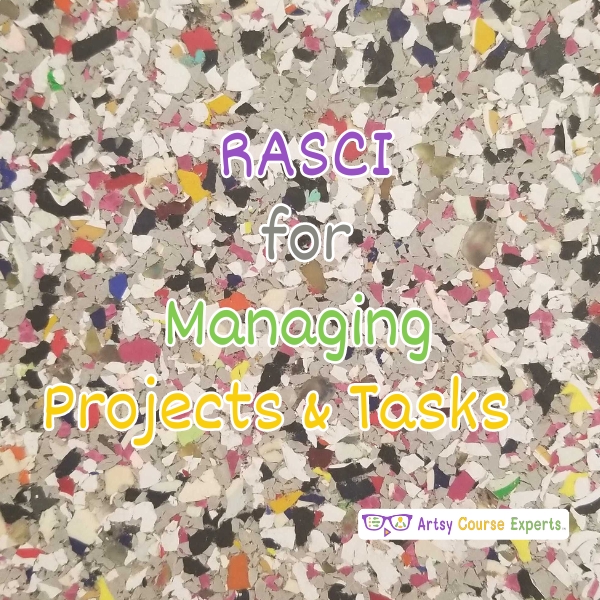You should be thoughtful about the support you provide or don’t provide to your students.
When prospective buyers are looking at your course page they may explicitly look for technical support and the ability to ask the teacher questions.
Unfortunately, some teachers may not get around to student questions as fast as eager students need answers. This can happen when teachers create courses but have moved on to other work instead of sticking around for students.
Another problem is that teachers may not have time to answer questions properly. So, busy teachers may only respond with a few words instead of a personalized and thorough answer.
In this article, we’ll review the various options an online course teacher has to balance support with profitability.
Video Tutorial
What Is A Service Level Agreement?
Service Level Agreements (SLAs) are used by businesses to let customers know what specific level of service customers will get.
For example, an SLA could state that the customer support team will respond to all customer questions within 24 hours or on the next business day.
Using an SLA model, a teacher could think and document support for the following topics:
- Price – How much will the course cost and the cost of extras like coaching sessions or reviews?
- Quantity – Are there limits to how many questions can be asked per day, per course, or per topic?
- Duration – How long will the course lessons be available and how long do students get support?
- Type – How will support be delivered? For example, support via chat room, email, phone, zoom, etc.
- Uptime – What guarantee are you making about the course being available 24×7? What if the server or internet goes down and it’s out of your control?
- Response Time – How fast will you get back to students once you have received and started looking at their questions? What about weekends and holidays?
- Resolutions – How fast will you fix their problem? It could be a problem for one student or many students?
What Speed Do You Provide Support?
As a course provider, you should have a target for how fast you try to respond and answer questions.
Questions can be about a variety of course business topics such as:
- Sales Questions – Do you offer a payment plan?
- Student Content Questions – Where do I need to send a sci-fi book publisher?
- Technical Questions – How can I get the video lessons to work on my Amazon Kindle?
- Operations Questions – I lost my login password, how do I reset it?
- Billing Questions – I bought the course bundle, but I was double-charged even though I used a coupon.
Pre-sales questions are particularly time sensitive because they let prospects know that you are professional, responsible, thorough, and available for them now and hopefully during the course.
Technical and Operational questions are the next tier of priority, since they may stop the student from accessing the course.
Billing questions or problems could lead to refunds, so they should be responded to and looked into quickly, even though the resolution may take a few days.
Finally, content questions can be answered little by little as they come in or as we recommend using blocks of dedicated teacher time daily.
Communicating Support On Your Sales Page
On your sales page, you’ll want to highlight as many of your support options to potential customers without telling them many of your limitations.
For many students, your hands-on availability and support is a very important buying point. So, you should definitely let your customers know that you are going to be available to help them with personal class questions on their learning journey.
Remember you can adjust the sales page later (or yearly) as your total students per week grows or you get help with your various support requests.
A strong course sales pages should absolutely have an FAQ section that explains some common SLA support concerns.
Here are some example questions that you should answer on your sales FAQs:
- Will I be able to ask the teacher questions about lessons?
- How do I get technical support with watching the lessons on my computer?
- How long do I have to ask for a money-back guarantee?
What Is The Quality of Your Teacher Answers?
Once you provide answers to your students, hopefully your answers are helpful and not vague, or even more confusing.
Some experienced teachers can provide a quick and short answer, but one that is still very helpful like “yes, the sewing thread at Joann’s is pretty good.”
However, the best teachers provide rich answers, pictures/videos, lists of vendors, and even coupon codes.
These teachers have also learned to save, reuse, and improve answers to the most popular questions. Teachers can also use tools like Text Expanders to quickly insert a perfect, long answer that can be tweaked with a few keystrokes.
Some of your answers may turn into a whole multi-part conversation that can be amazing for students but exhausting for teachers with hundreds of students.
Finally, sometimes teachers don’t immediately have the answer and have to get back to students. Successful teachers will at least respond professionally within a day to say that they are looking into it. As a teacher, you should have a system to scan for open questions or record these tasks and eventually close the loop for your students.
How Can You Improve Your Response Time?
If your student base is growing or you simply have other things to focus on, how can you provide a decent or great response time for your students?
Here are some ideas to get help with your response time:
- Hire an assistant that can help with responding to common questions using a document you provided
- Outsource some parts of your support like technical support, video editing, or community management
- Use technology to merge your notifications, chats, and support emails into a single feed that you check daily
Another option is to simply reduce your student questions by:
- Offering refunds to students who have significant problems
- Charging more for your course to get fewer students and questions but with a similar revenue
- Offering premium individual or group coaching for students with need more than your maximum number of questions
Would Changing Your SLA Grow Your Business?
What if you dared to provide a stellar experience for all or some of your students?
Perhaps you can really go all in on answers, response time, quality, and even other communications like a hearty welcome, open door policy, and how are you doing check-ins?
Imagine if students started writing glowing reviews about how you answered all their questions and you were the best culinary teacher they’ve ever had.
What if it did require you or a helper to handle 30 to 60 minutes a day of questions, but increased your overall revenues by 10 times!
These delighted students will not only leave the highest ratings possible but also go out and tell their friends, coworkers, and communities about your course. These students would become super fans with referrals that would increase your monthly course sales.
Finally, what if all these students went on to buy additional products from you or even better signed up for a monthly community from you? The Life Time Value (LTV) of these customers with recurring revenues would provide success beyond what you even thought was possible.
FAQs: How To Choose Your Online Course Support Speed and Quality
- Frequently Asked Questions for Creative Course Sales
- Specifying Requirements For Your Online Course
- Handling Course Maintenance And Outages
- Is It Easy For Students To Ask The Teacher Questions?
- Using Surveys To Grow Your Course Sales
- Course Operation Services To Offload Technical Support
Let’s Wrap Up
Some of the standards you set for student response time and quality may vary with how many active students you have.
Nevertheless, your support plan shouldn’t be an accident, and as an online teacher, you should know that you are aiming for brief (25-word) responses within a reasonable target time like 24 hours.
You may want to consider updating your course FAQs with some of your SLAs. And you could even have 2 FAQs, a short one for prospects and a detailed FAQ for your students directly in the course.
If providing good support to your students seems timely and expensive, consider getting help from an assistant, contractor, or outsourced specialty agency.
We also wanted you to open your mind and think about how your course business could explode with ratings, upsells, and referrals if you provided your students with custom answers and high-quality tech support.
For more creative teacher help building, operating, and growing your online courses, check out our ArtsyCourseExperts blog and subscribe to our email for regular tips.
So now, you’re a lot smarter. Thanks for hanging out!
Please subscribe to get more tips for creative online course teachers.
These lessons can also help you with Education and Course Content:
Specifying Requirements For Your Online Course
Is It Easy For Students To Ask The Teacher Questions?
Using Surveys To Grow Your Course Sales
Course Operation Services To Offload Technical Support











